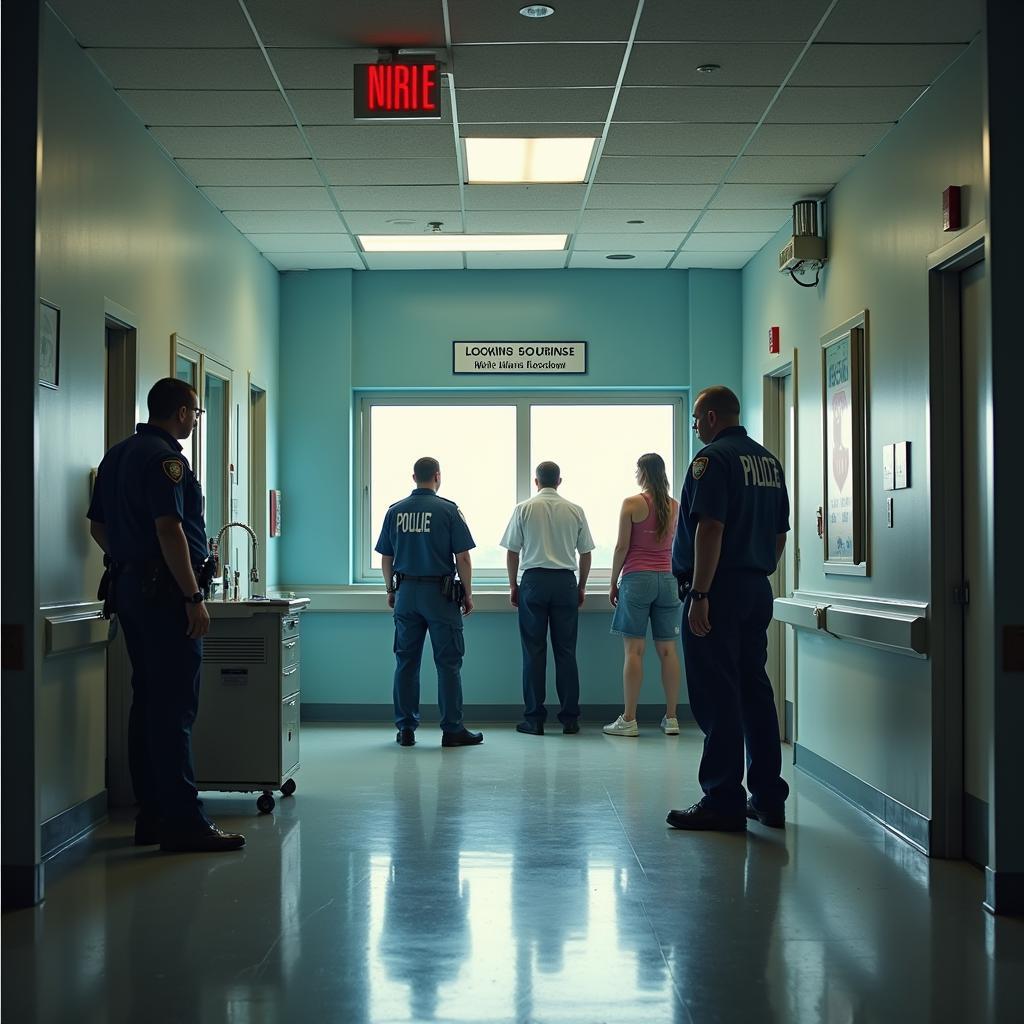A hospital lockdown is a precautionary measure implemented by healthcare facilities to restrict movement within and around the building. This protocol is typically enacted in response to immediate threats, such as an active shooter, bomb threat, or other serious security concerns. While hospital lockdowns can be unsettling for patients, visitors, and staff, understanding the reasons behind them and the procedures in place can help to ensure everyone’s safety.
What Triggers a Hospital Lockdown?
Hospital lockdowns are not taken lightly. They are serious measures taken in response to specific, credible threats within or near the hospital premises. Some common reasons for initiating a hospital lockdown include:
- Active Shooter Situation: This is unfortunately becoming a more common reason for lockdowns. In the event of an active shooter within the hospital, a lockdown is initiated to prevent further casualties.
- Bomb Threat: If a bomb threat is received, the hospital will be locked down to allow security personnel and law enforcement to assess the situation and safely evacuate or secure the building.
- Hostage Situation: In the rare event of a hostage situation, a lockdown helps contain the situation and prevent further individuals from being taken hostage.
- Civil Disturbances: In some cases, lockdowns may be initiated due to civil unrest or protests happening in close proximity to the hospital.
- Hazardous Material Incidents: If there is a chemical spill or other hazardous material incident within or near the hospital, a lockdown can help prevent exposure and allow for a safe evacuation.
 Hospital Lockdown Emergency Response
Hospital Lockdown Emergency Response
What Happens During a Hospital Lockdown?
Hospital lockdowns are designed to minimize risks and protect everyone within the facility. While specific procedures may vary depending on the nature of the threat and the hospital’s individual protocols, there are some common actions that typically occur:
- Announcement: A lockdown announcement will be made over the hospital’s intercom system and/or through electronic communication systems.
- Secure Entrances and Exits: All exterior doors will be locked and guarded to prevent anyone from entering or leaving the building.
- Shelter-in-Place: Patients, visitors, and staff will be instructed to shelter in place. This usually involves staying in their rooms or designated safe areas.
- Accountability: Staff members will be responsible for accounting for their patients and visitors.
- Communication: Updates will be provided through official channels as the situation unfolds.
- Law Enforcement Response: Law enforcement will arrive on the scene to assess the situation and take appropriate action.
What You Should Do During a Hospital Lockdown
Being prepared and knowing how to react during a hospital lockdown can significantly increase your safety.
- Remain Calm: It’s natural to feel scared or anxious, but try to remain calm and follow instructions.
- Listen for Instructions: Pay close attention to announcements and instructions from hospital staff and security personnel.
- Find a Safe Place: If you are not in a patient room, find a secure area away from windows and doors. Follow any specific instructions given by hospital staff.
- Silence Your Phone: Silence your cell phone and other electronic devices to avoid drawing attention.
- Stay Put: Do not attempt to leave the building unless instructed to do so by authorized personnel.
- Be Observant: If you see or hear anything suspicious, report it to hospital staff or security immediately.
“During a lockdown, clear communication is key,” says Dr. Sarah Thompson, Chief of Emergency Medicine at City General Hospital. “Patients and visitors should rely on official announcements from the hospital staff and security personnel for accurate information and instructions.”
How to Prepare for a Potential Hospital Lockdown
While no one wants to think about the possibility of a hospital lockdown, being prepared can make a difference in an emergency situation.
- Familiarize Yourself with Emergency Exits: Take note of the nearest exits to your location when you are in the hospital.
- Discuss Lockdown Procedures: If you are a regular visitor or patient, discuss the hospital’s lockdown procedures with your healthcare provider or a staff member.
- Create a Communication Plan: Have a plan in place for communicating with family members or loved ones in case of an emergency.
Frequently Asked Questions about Hospital Lockdowns
1. How long does a hospital lockdown typically last?
The duration of a hospital lockdown can vary greatly depending on the nature and severity of the threat. It could last anywhere from a few hours to an entire day.
2. Will I be able to contact my family during a lockdown?
You may have limited or no access to phone lines or cell service during a lockdown. It is advisable to have a designated contact person outside the hospital that family members can reach.
3. What if I need medical attention during a lockdown?
Hospital staff will still be available to provide essential medical care during a lockdown. If you have an urgent medical need, alert a staff member immediately.
mercy hospital lock down | summerlin hospital lockdown
Staying Safe in Uncertain Times
Hospital lockdowns, though disruptive, are essential safety measures designed to protect lives. By understanding the reasons behind them, knowing how to respond, and taking steps to prepare, we can all contribute to a safer environment for ourselves and those around us.
Need Assistance? Contact Us:
Phone Number: 02437655121
Email: [email protected]
Address: No. 298 Cau Dien Street, Minh Khai, Bac Tu Liem, Hanoi, Vietnam
Our dedicated customer care team is available 24/7.